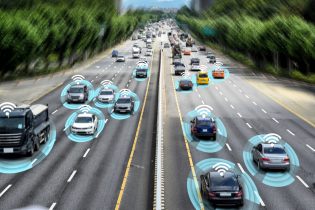Connected and autonomous vehicle (CAV) technologies present great opportunities for reducing traffic congestion through advanced sensors, communication, and portable computing devices – those which assist with conducting cooperative or coordinated driving.
However, much of the CAV-related work focuses on assisting self-driving maneuvers and an individual vehicle’s safety. The technology does not promise traffic stream efficiency and smoothness when a group (or platoon) of self-driven vehicles is “packed” on a freeway while interacting with human-driven vehicles.
Dr. Lili Du, an associate professor in the UF Department of Civil & Coastal Engineering, and her team of researchers at UF, along with Dr. Jinglai Shen of the University of Maryland (Baltimore County), and Dr. Jiaqi Ma of the University of California (Los Angeles) sought out to find more. They are currently working on a National Science Foundation funded project that will undertake the following: 1) create system optimal platoon-oriented smart driving control; 2) leverage real-time learning; and 3) use distributed optimization.

To develop their methodology, the researchers plan to combine traffic flows, Model Predictive Control (MPC), optimization, machine learning, and distributed computation. So far, the theoretical analyses and numerical experiments related to this specific project have shown that the platoon-oriented driving will significantly improve traffic efficiency, smoothness, and safety.
This study is funded by the National Science Foundation/Collaborative Research. More information at https://www.nsf.gov/awardsearch/showAward?AWD_ID=1901994.
For more on the theoretical analysis and numerical experiments, see links below for two published papers:
Cooperative platoon control for a mixed traffic flow including human drive vehicles and connected and autonomous vehicles, Transportation Research Part B: Methodological (https://www.sciencedirect.com/science/article/pii/S0191261517311827)
Constrained optimization and distributed computation based car following control of a connected and autonomous vehicle platoon, Transportation Research Part B: Methodological (https://www.sciencedirect.com/science/article/pii/S0191261516303836)
This story originally appeared on UF Transportation Institute.
Check out other stories on the UF AI Initiative.
